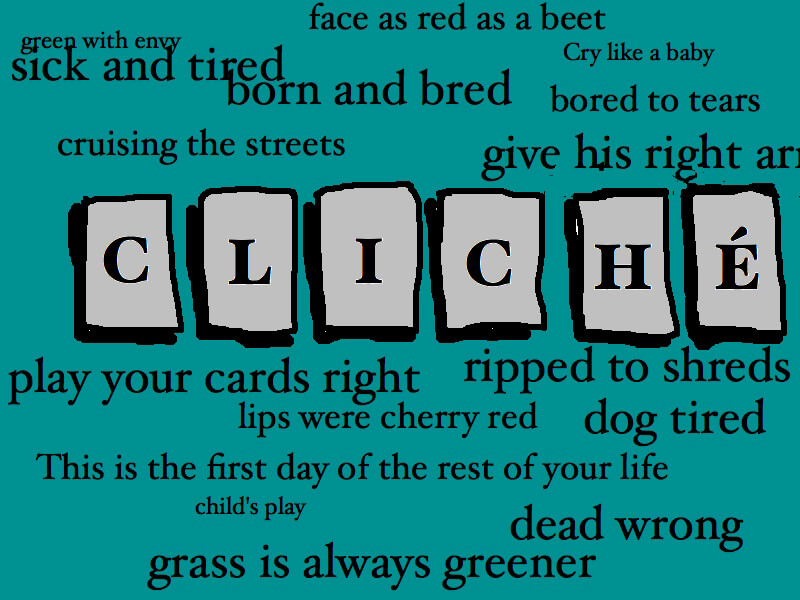20 Exclusive Copywriting Tips You’d Better Know
Quality content is more than king, it’s the modern equivalent of a life boat. Today’s consumer is savvier and more connected than ever. Writing web copy that truly stands out from the pack can differentiate your brand online, allowing you to retain an edge in an era of fierce competition.

If you’ve mastered the basics of writing well for readers online, you’re in for a treat. We’ve compiled the list of new web copywriting tips, which range from the advanced and scientific, to the slightly more unusual.
1. Split Long Sentences in Half
The average length of a webpage visit is between 10 and 20 seconds. Even if your visitors stay longer, there’s no guarantee they’ll fully absorb each line of your copy. Eye tracking studies have found the average reader scans pages in the following pattern:

There’s a time and place for complex, compound sentences, and it might not be on your website. Rely on shorter sentences as a rule, break compound thoughts in half, and use long sentences as the exception, to add variety.
2. Leverage the Negativity Bias
Leveraging dramatic or negative headlines, titles, and introductions could compel your readers in a way that surprises you. Neurologists have found that the human brain simply reacts “more strongly to stimuli it deems negative.”
You should be careful about the way depressing or dramatic messages reflect on your brand, but feel free to use this copywriting tip to have a little fun with shocking titles like “Why SEO is Dead Forever,” or “15 Reasons Your Website Sucks.”
3. Play Devil’s Advocate
The average modern consumer is savvy, and potentially a little jaded. Taking a controversial stance in order to prove a point could be more effective than actually just saying what you mean. Social Psychologist Charles Nemeth has found that arguments framed in “devil’s advocate” style actually strengthen the audience’s original position.
4. Be Honest
Being completely authentic about issues and mistakes isn’t just strong customer service, it can determine your company’s success. Studies have found that organizations who own up to their mistakes fare better, perhaps because they’re perceived as more-responsible by consumers. Never use your blog or web copy to pass the blame or ignore known issues.
5. Define Your Audience
Some of the most-famous marketing campaigns of all time weren’t afraid to be divisive. Apple’s 1984 commercial first cast their customers as creative and rebellious, a trend that continued into their PC vs. Mac commercials. Tell your customers who they are, or who they aren’t, but don’t be afraid to describe them.
6. Integrate Social Sharing
Provide your readers with an easy opportunity for one-click social media sharing by embedding a Tweet-it button in your web copy. Your shares could soar if it’s easier than ever for your prospects to publish your pages to Twitter.
7. Be Willing to Write Badly
Do you know what Google, consumers, and your boss all hate? Low-quality content. However, that shouldn’t stand in the way of progress. Don’t be afraid to write something terrible at first, even and especially if you’re on a tight deadline. Getting the thoughts out can allow more time for careful editing.
8. Fight or Flight
Every writer will encounter a thought that simply can’t be untangled into words. It happens often. You can either leverage fight or flight at this point, but don’t use your confusion as an excuse to abandon your work mid-stream. As one of the proven copywriting tips, consider abandoning the paragraph momentarily and working on a different section, or reading the troublesome sentence aloud to spark your brain.
9. Don’t Edit Initially
If your biggest enemy to writing is yourself, put a firm “no editing” rule into place. Even experienced web copywriters can struggle with a tendency to ensure each sentence is perfect before they move on. A research has shown that the world’s most-effective writers spend:
- 40% of Their Time Planning and Researching
- 25% of Their Time Writing
- 35% of Their Time Editing
Ensure your perfectionist tendencies aren’t standing in the way of your research or dedicated editing time.
10. Use Exclamation Points Sparingly
F. Scott Fitzgerald once quipped that “using an exclamation point is like laughing at your own joke.” Really, they’re a bit like the black pepper of punctuation. If you use too much, all the other flavors of your copy will be entirely overpowered. Use your words to convey excitement and emphasis, not exclamation points as a default.
11. Don’t Rely on Spellcheck
One of the most magical tools for modern content creators is spell check, but it’s certainly not everything you need to publish your copy. Invest in a good editor who can catch the commonly-confused words that even the best writers flub.
12. Block Everything Out
Working without a wireless connection isn’t for every writer, but some notable authors you’ve almost certainly heard of – namely Neil Gaiman and Zadie Smith – swear by the Freedom app. The program and others like it completely block your ability to minimize your document and start surfing Facebook.
13. Eliminate Adjectives
Mark Twain who knew many copywriting tips advised writers to “kill your adjectives.” Use the words you need to convey your message, but axe anything that’s sheer fluff.
14. Avoid Clichés
Clichés aren’t just lazy writing, they’re an ineffective web copywriting tactic. Depending on how overused the phrase you’ve picked is, a reader could perceive your brand as lazy, or decide to tune you out entirely. Would you really want to read more of the content excerpted below?

Image Courtesy of Gabble & Gumption
George Orwell wrote, “never use a metaphor, simile, or other figure of speech which you are used to seeing in print.” For a comprehensive list of phrases that have been typed far too many times, check out the Oxford Dictionary’s guide to Avoiding Clichés.
15. Build Vibrant Buyer Personas
Great web copy builds camaraderie between a brand and a prospect. Consumers buy from companies they know and trust, and writing in a familiar tone of voice can be among the best ways to boost the relevance of your content. How do your brand’s ideal customers talk? Are they highly technical and erudite, or do they prefer casual language?
16. Invest in Facts
The difference between mediocre content that fails to convince anyone of anything, and powerful copy that compels, convinces, and converts is sometimes found in the statistics. Recognize the fact that these statistics lend credence to your content, and pick your figures carefully. As a general rule of thumb, avoid using any facts and figures that are more than two years old, particularly if you’re covering web or technology topics. Here are a few of the most-trusted resources:
- Factbrowser – Statistics Search Engine
- Nielson – Leading Consumer Research Firm
- Gartner – Trusted Technology Insights
If a statistic cited by another blogger seems too fantastic to be true, it certainly could be the case. Always follow facts to the original source before putting your brand and personal reputations on the line
17. Add a Postscript
Your readers are really busy, and they might not make it through the entirety of your content. That’s okay, because you can ensure your message hits home by including a post script. Summarize your thesis, or identify a few action items they can put in their pocket.
18. Think Like a Journalist
There’s a reason why traditional media typically follows a distinct format of “who, what, when, where, why, and how.” It’s because these criteria allow writers to communicate a comprehensive benefit to busy readers. or skip to the comics. The Five Ws and One H of journalism can lend a sense of completion to your web copywriting; let your audience know who can benefit, what they’ll gain, when and where they can expect results, why it works, and how to get started.
19. Quantify Whenever Possible
If your audience is anything like the average consumer, they encounter around 5,000 marketing messages a day. That’s a staggering amount of information to wade through; and quantifying your title and message whenever possible can allow your web copy to stand out among an abundance of information. If you’re providing 15 web search tips, or a plan for 20% better social media engagement, don’t keep it a secret. HubSpot research has found that including numbers in blog titles is a tried-and-true success copywriting tip.
20. Forget What You Learned in English Class
The mark of an accomplished web copywriter is someone who’s learned to walk the fine balance between writing that’s correct, and writing that compels. We’re definitely not saying you should eliminate punctuation or start writing sentence fragments, but feel free to break a few rules when it’s necessary for clean, conversational content. If it helps you get your point across, forget everything your English teacher ever told you about not starting sentences with “and” or “but.”
What web copywriting tips and tactics have worked best for you? Please do not keep it a secret and share with us in the comments section.

Comments (0)